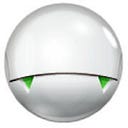音乐中的英语
Rivers of Babylon 是少有的几首,歌词直接取自圣经的流行歌曲:By the rivers of Babylon, there we sat down, yea, we wept, when we remembered Zion… They carried us away in captivity requiring of us a song… Now how shall we sing the LORD’s song in a strange land?
Babylon:巴比伦
Zion:耶路撒冷的别称
wicked:邪恶的(人)
thy:你的
词根词缀
-age:有3种意思在这个后缀下面:1) 把一个动词变为名词,表示这个动词的状态、过程和结果;2) 表示一个数量;3) 表示一个地点或者住所。单词有:carriage(搬运的状态->运输),storage(贮藏的状态->仓库),bangage(绑的状态->绷带),hermitage(隐士住处,法语借词),beverage(饮料,法语借词)
intro-:表示 inward, inside 的意思,单词有:introspective(内省的,反省的),introvert(内向的人),introduce(引进,介绍)
counter-, contra-, contro-:表示 against, in the opposite direction 的意思,单词有:contravene(冒犯,顶嘴),controvert(辩驳,反驳),contraband(违禁品,走私),counterpart(配对物),countermand(撤销命令),contrast(对比),contrary(相反的),contradict(反驳)
概念梳理:Pronoun
Pronouns are some of the most useful words in the English language. They are used in the place of a noun to avoid it having to be named twice. For example: Suzy threw the boomerang and it came back to her. In this sentence, “it” is a pronoun that represents the boomerang, and “her” is a pronoun that refers to Suzy. Without pronouns, we’d have to say Suzy threw the boomerang and the boomerang came back to Suzy. Without pronouns, how would we even say “we”?
代词就是「代替名词」的词,英语中的代词,按其意义、特征及在句中的作用分为:人称代词、物主代词、指示代词、反身代词、相互代词、疑问代词、关系代词、连接代词、不定代词和替代词十种
https://www.thefreedictionary.com/List-of-pronouns.htm
Personal pronouns
I, you, he, she, it, we, they, me, him, her, us, them.
There are two kinds of personal pronouns: Subjective pronouns and objective pronouns.
Subjective pronouns
I, you, he, she, it, we, they, what, who.
Objective pronouns
me, him, her, it, us, you, them, whom.
Possessive Pronouns
mine, yours, his, hers, ours, theirs.
Demonstrative Pronouns
this, that, these, those.
Interrogative Pronouns
who, whom, which, what, whose, whoever, whatever, whichever, whomever.
Relative Pronouns
who, whom, whose, which, that, what, whatever, whoever, whomever, whichever.
Reflexive Pronouns
myself, yourself, himself, herself, itself, ourselves, themselves.
Intensive Pronouns (same as Reflexive Pronouns but different meaning)
myself, yourself, himself, herself, itself, ourselves, themselves.
Reciprocal Pronouns
Each other, one another.
Indefinite Pronouns (this is not a complete list)
Anything, everybody, another, each, few, many, none, some, all, any, anybody, anyone, everyone, everything, no one, nobody, nothing, none, other, others, several, somebody, someone, something, most, enough, little, more, both, either, neither, one, much, such.
